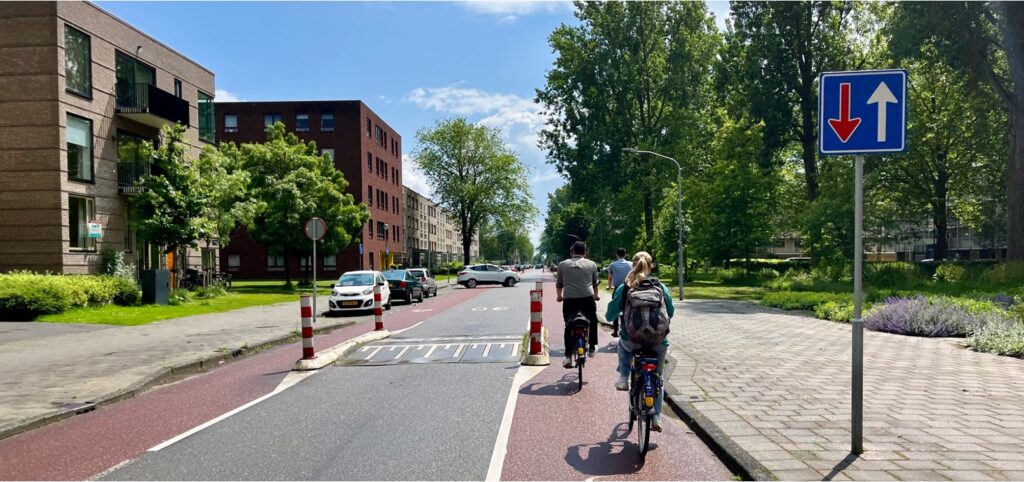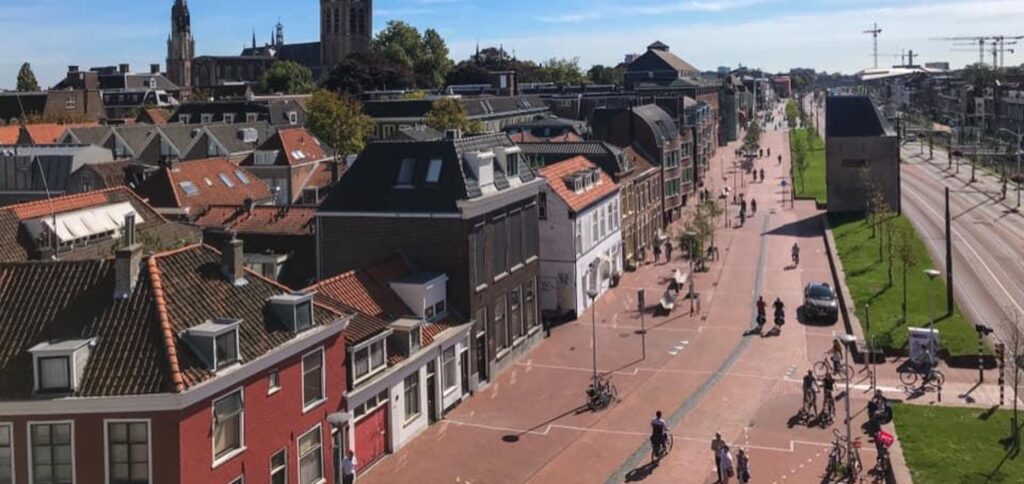Now Available: Mobycon’s Planetizen Course Series
We’re excited to announce our Planetizen course track by Mobycon! This update provides additional information about our exciting new options for online transportation planning education.
At Mobycon, our goal is to help new places and environments access sustainable mobility solutions. These courses leverage our extensive experience in capacity building and custom virtual and in-person training to bring our approach to even more locations.
With our new Dutch Approach to Urban Planning track of Planetizen courses, we hope to empower our audiences to join the sustainable mobility movement and spread the Dutch approach further. Planetizen has been at the forefront of online urbanism education for over two decades, and it’s an honor to contribute to its extensive course collection.
Lennart Nout, with help from Nick Falbo and our extensive library of past projects from the Netherlands and abroad, makes the planning principles that have enabled the Dutch to travel safely and sustainably accessible and engaging in these presentations. Whether you’re an experienced professional, a student, or a transport enthusiast, you will leave these AICP-certified courses with a good understanding of what benefits the Dutch approach to mobility can bring to any environment.
These courses are beneficial for individuals who wish to apply our approach to urban contexts outside the Netherlands.

The four-part track includes:
1. Introduction to Dutch Network Planning
You will learn the five principles of Dutch network planning, as well as the history of activism and citizen involvement that contributed to their achievement. We will also explore the uses of network thinking, how to apply it at the network level, and in physical changes to the street. You will see how car, transit, bike, and pedestrian networks are interdependent and must complement each other to function effectively.

2. Good Speed by Design: A Network Approach to Traffic Calming
This course focuses on the how and why of traffic calming. Most of the Dutch cycle network is not physically separated from cars. The rest of the network is made safe for cyclists of all ages with a series of traffic calming measures.
Lennart Nout explores some of these, developing a “speed toolbox” of chicanes, raised intersections, pinch points, continuous sidewalks, and more interventions that can slow car traffic down without requiring conscious effort from drivers. Special attention is paid to applications of traffic calming in the North American context.

3. Principles of Safe Intersection Design
Intersections deliver endless utility to a transportation network, but also cause a significant number of traffic fatalities, which is why they are the focus of this course in the series. Building on the “speed toolbox”, you will learn the hierarchy of safe intersection types and why traffic lights can cause more harm than good. By understanding intersections in terms of conflict points, exposure, and consequences, you will be able to justify choices for roundabouts or signalized and unsignalized intersections.
Nick Falbo joins the host in this episode, bringing his expertise in North America to help adapt our recommendations to international environments.

4. The Good Street: A New Methodology of Balancing Place and Flow
In this course, you will use the specific details of the Dutch planning approach to support an understanding of ‘place’ and ‘flow’, two key concepts that should determine your treatment of a street or road. You will learn to use this understanding of a street’s ideal function to tell a story that convinces people of the benefits of conscious network planning, and test it out by conducting an Integrated Place Assessment of the street you live on.
All courses in our new Dutch Approach to Urban Planning track are now available on Planetizen’s website. Interested in bringing the Mobycon approach directly to your team or a project near you? Get in touch with one of our sustainable mobility experts to discuss project consulting, webinars, or bespoke training sessions through our Mobycoach service.

